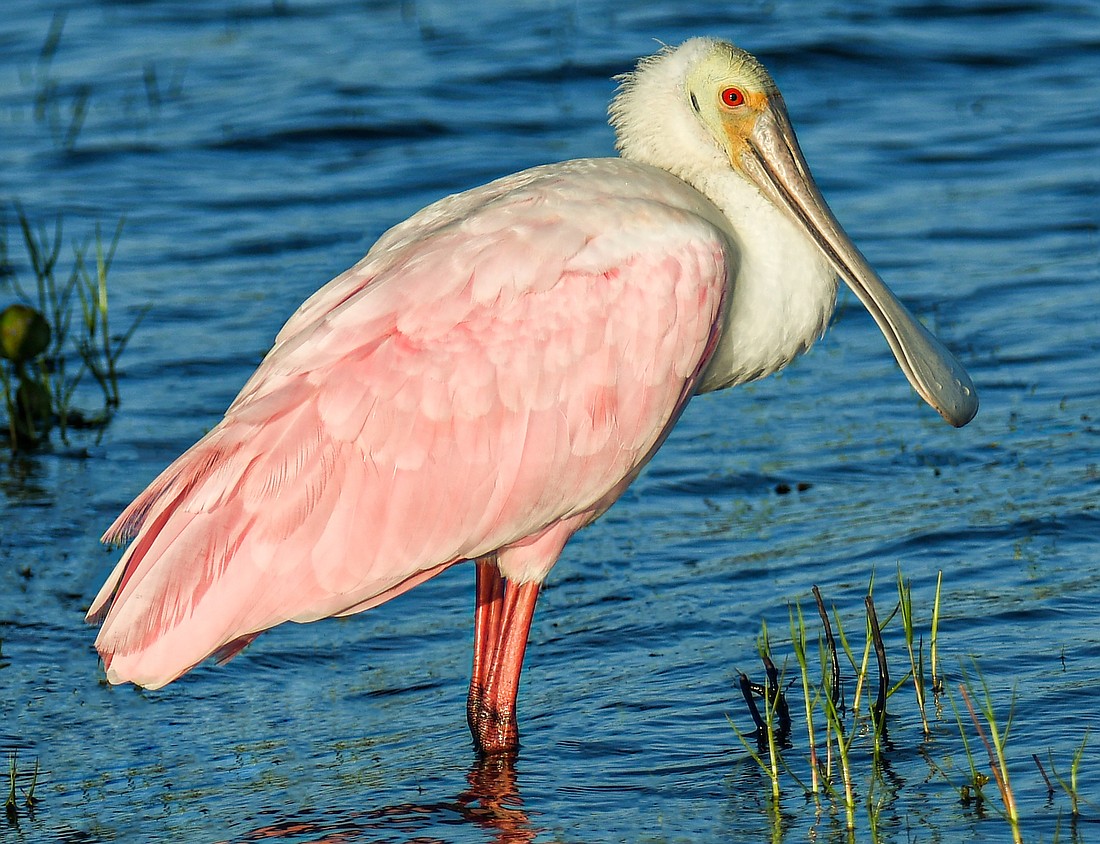- November 19, 2025
-
-
Loading

With their pink feathers, bright red eyes and partly bald heads, roseate spoonbills stand out in a crowd. The only spoonbill native to the Western Hemisphere, their rosy coloring comes from their diet of crustaceans, a food rich in the natural pigment carotenoids.
Unlike other wading birds, such as herons, who use their sword-like bills to stab prey, Spoonbills hunt by touch, a helpful adaptation for birds that forage in muddy or vegetation-clogged water. They walk through shallow water with their spoon-shaped bill plunged nearly vertically under water and swing it side to side in wide arcs. The resulting mini-whirlpools pull up small crustaceans from the muddy bottoms. When the sensitive touch receptors along their bills detect vibrations, their bills quickly close to capture their prey.
Roseate spoonbills were nearly hunted to extinction in the late 1800s, as they nest in large mangrove colonies with other wading birds, including the then-highly lucrative egrets. Spoonbill pink feathers were not in very high demand for the hat industry, as they fade quickly, though they were locally popular in fans. Many birds were nonetheless indiscriminately killed by the plume hunters who decimated Florida's wading bird colonies.
Thanks to conservation efforts and protection by the Migratory Bird Treaty Act, roseate spoonbill numbers rebounded. They are, however, a Florida state designated threatened species, because of habitat reduction and degradation of their food supply.
In recent years, in response to rising water and temperatures, roseate spoonbills are moving north from South Florida (their primary Florida breeding grounds for decades), to find new sources of food. To help protect these endemic Florida birds, conservation of appropriate feeding and nesting habitats is critical.
Save our Seabirds is a non-profit organization whose mission is to rescue, rehabilitate, and release sick and injured wild birds. Follow @SaveOurSeabirds to learn more about our birds.